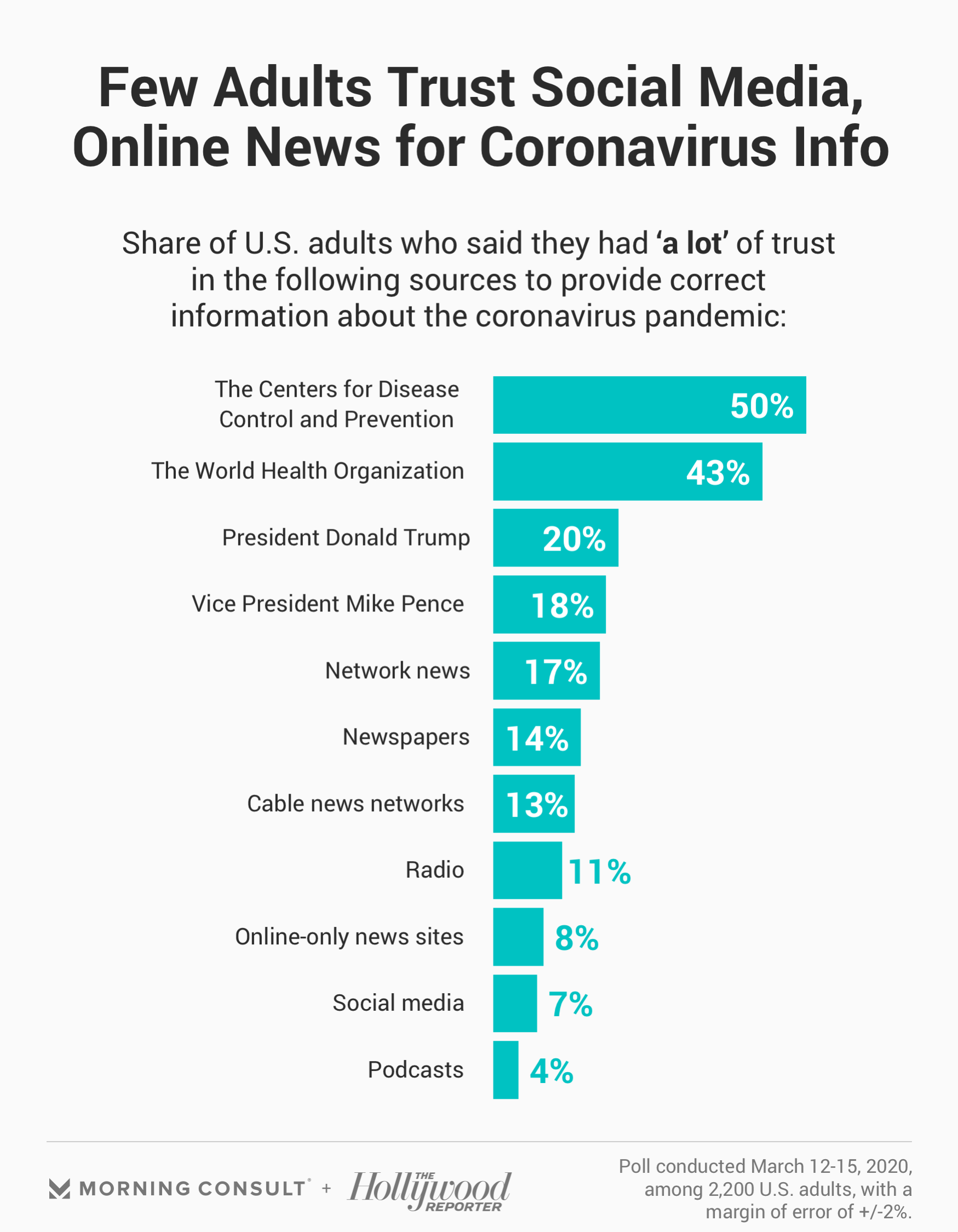Adults More Likely to Trust CDC, WHO Over TV News for Coronavirus Information

Key Takeaways
50% of adults said they have stopped watching a news program that they thought had reported incorrect information, but an equal share said they had not.
Half of respondents think the media is overhyping the spread of the coronavirus pandemic, while one-third said the media is providing appropriate coverage.
As daytime and late-night talk shows, as well as scripted comedies and dramas, suspend production amid the coronavirus pandemic, news coverage is becoming the centerpiece for many networks. But a new poll finds that Americans are much more likely to trust health agencies over cable and network news and that half the public thinks the media is overhyping the spread of the virus.
A March 12-15 Morning Consult/The Hollywood Reporter poll found that half of the 2,200 individuals surveyed said they trusted the Centers for Disease Control and Prevention “a lot” when it came to information about the coronavirus pandemic. That includes 56 percent of respondents who watch cable for news at least once a week, as well as 55 percent of those who get their news from network TV at least once a week. Forty-three percent of the public said the same of the World Health Organization.
Respondents were much less trusting of media outlets about coronavirus information: Thirteen percent said they trusted cable news “a lot,” and 17 percent said the same of network news.
Twenty-two percent of those who watch cable news at least once a week said they trusted the cable news networks “a lot” on the topic, while 24 percent of those who watch network news at least once a week said they have “a lot” of trust in the network news.

The survey’s margin of error is 2 percentage points, while the margin of error for frequent cable and network news watchers is 3 points.
The poll also indicates that a portion of the public has a high threshold for accurate information and isn’t afraid to tune out if that expectation isn’t met.
Half of adults said they have stopped watching a news program that they believed was providing incorrect information, but half of adults said the opposite. The numbers were starker along partisan lines, as 45 percent of Democrats said they had stopped watching a program they felt was reporting incorrect information, compared to 58 percent of Republicans.
The Democratic subsample has a margin of error of 3 points, while the Republican subsample has a margin of error of 4 points.
Fox Business host Trish Regan saw her program placed on indefinite hiatus Friday after she described the coronavirus as “another attempt to impeach the president” during her show last week. The network said the move came as a result of “the demands of the evolving pandemic crisis coverage,” per The New York Times.
And as networks adapt their programming as a result of the coronavirus -- with ABC moving “Jimmy Kimmel Live!” back to 12:05 a.m. to make room for pandemic coverage on “Nightline” -- half of survey respondents say the media is overhyping the extent of the illness, though one-third of respondents said the coverage was appropriate. A 46 percent plurality of adults said the media is paying too much attention to the outbreak, compared to 37 percent who said the media is paying the right amount of attention.
Sarah Shevenock previously worked at Morning Consult as a reporter covering the business of entertainment.
Related content

As Yoon Visits White House, Public Opinion Headwinds Are Swirling at Home

The Salience of Abortion Rights, Which Helped Democrats Mightily in 2022, Has Started to Fade
